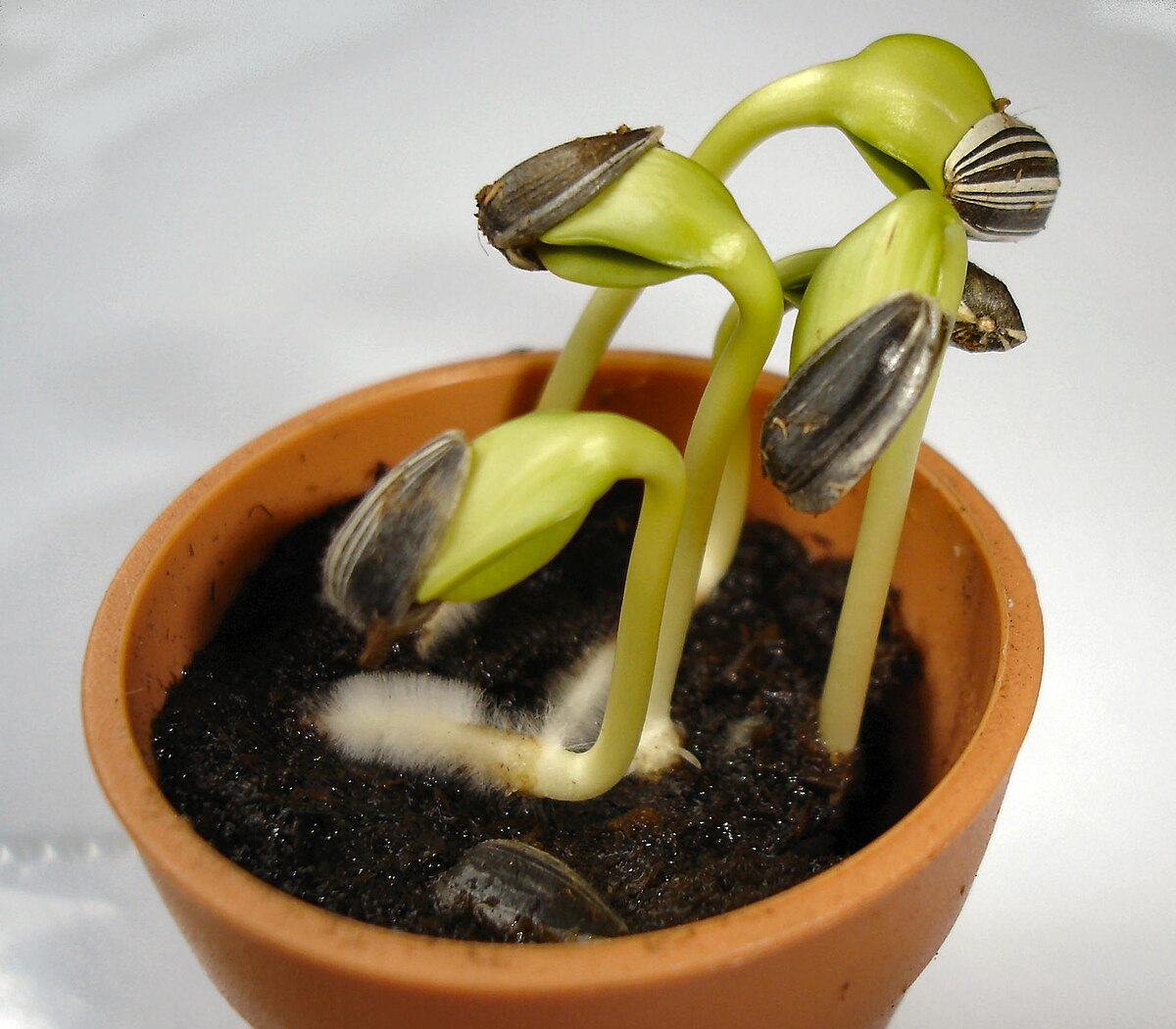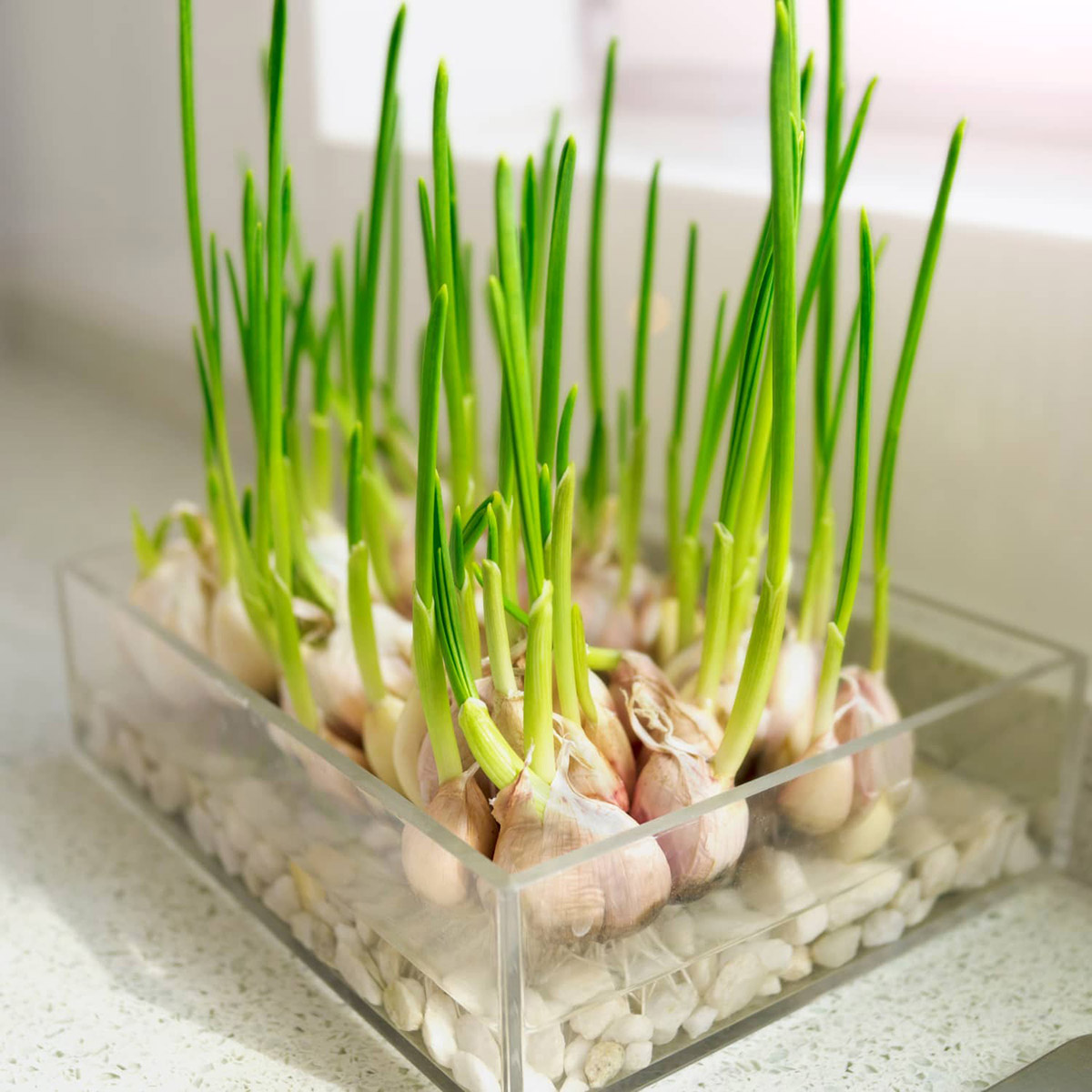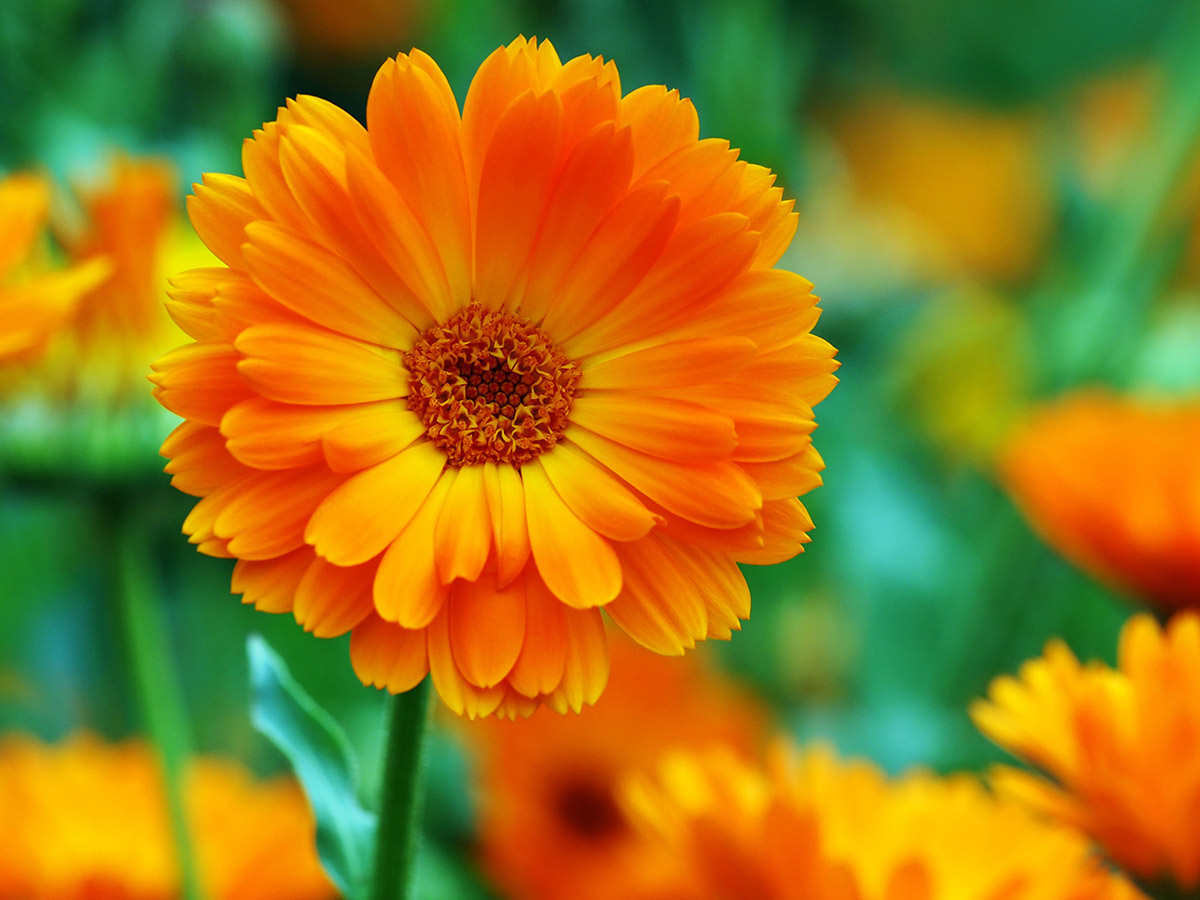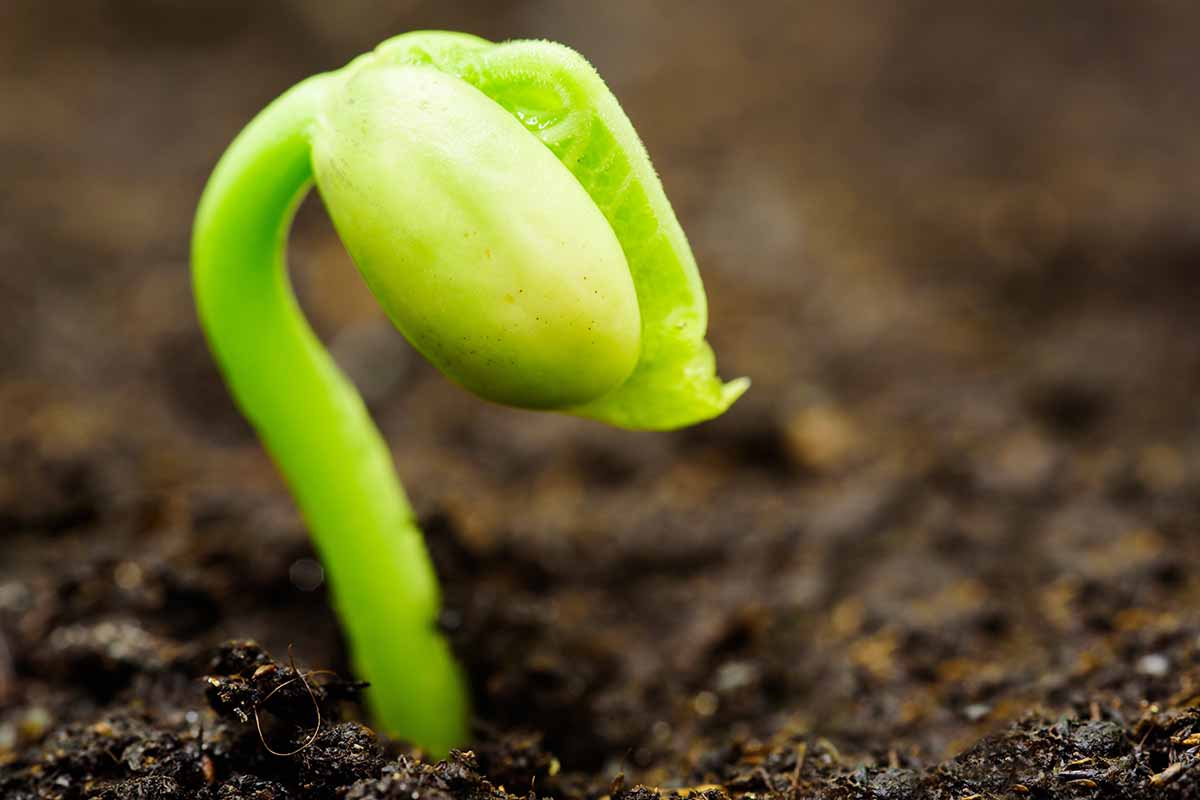Home>Garden Essentials>How Long Does It Take A Plant To Germinate


Garden Essentials
How Long Does It Take A Plant To Germinate
Modified: March 15, 2024
Learn how long it takes for a garden plant to germinate and start growing. Discover the process and timeline for successful gardening.
(Many of the links in this article redirect to a specific reviewed product. Your purchase of these products through affiliate links helps to generate commission for Storables.com, at no extra cost. Learn more)
Introduction
Gardening enthusiasts and nature lovers often find themselves eagerly waiting for their seeds to sprout and bring life to their gardens. But have you ever wondered how long it actually takes for a plant to germinate? Germination, the process by which a seed transforms into a seedling, can vary greatly depending on several factors. Understanding these factors can help you manage your expectations and plan your gardening activities more effectively.
Germination time is influenced by a variety of environmental and biological factors. These include seed quality, temperature, moisture, light exposure, and the specific requirements of each plant species. By understanding these factors and the germination times for different types of seeds, you can create the optimal conditions for successful plant germination.
In this article, we will delve into the various factors that affect germination time and explore the specific germination times for common vegetable, flower, tree, shrub, and herb seeds. Additionally, we will provide you with some tips on how to expedite the germination process and get your garden thriving in no time.
Key Takeaways:
- Patience is key in gardening as different plants have varying germination times. Factors like temperature, moisture, and seed quality affect how long it takes for seeds to sprout.
- Techniques like pre-soaking, scarification, and providing optimal conditions can speed up germination. Understanding these factors helps plan and manage a successful garden.
Factors Affecting Germination Time
The time it takes for a seed to germinate depends on a multitude of factors. These factors can vary from plant to plant and even within different varieties of the same plant species. Understanding these factors allows you to create the optimal conditions for successful germination. Here are some important factors that influence germination time:
Seed Quality:
The quality of the seed significantly affects germination time. Fresh and viable seeds have a higher chance of germinating quickly compared to old or damaged seeds. It’s essential to obtain seeds from reputable sources to ensure the best germination results.
Temperature:
Temperature plays a vital role in seed germination. Each plant species has an ideal temperature range for germination. Generally, warm-season crops like tomatoes and peppers prefer temperatures between 75 to 85°F (24 to 29°C) for optimal germination. Cool-season crops like lettuce and spinach, on the other hand, typically germinate best in temperatures around 60 to 70°F (15 to 21°C).
Moisture:
Seeds need adequate moisture to trigger germination. Depending on the plant, seeds may require varying levels of moisture. Some seeds prefer to be constantly moist, while others may require alternating periods of wet and dry conditions.
Light Exposure:
Light requirements for germination can vary depending on the species. Some seeds require exposure to light to initiate germination, while others germinate in darkness. This is important to consider when sowing seeds, as improper light exposure can significantly impact germination time.
Seed Dormancy:
Some plant seeds have built-in mechanisms that delay or prevent germination until specific conditions are met. This is known as seed dormancy. Dormancy can be broken through processes such as cold stratification or scarification, which help break down the seed coat and promote germination.
Seed Treatment:
Applying certain treatments to seeds can help speed up germination. For example, pre-soaking seeds in water or using a seed primer can soften the seed coat and accelerate the germination process.
By understanding and managing these factors, you can provide the ideal conditions for seeds to germinate. Creating a favorable environment for germination will enhance your gardening success and result in healthier and more productive plants.
Plant Germination Times for Common Species
Germination times can vary widely depending on the type of plant species. Some seeds germinate relatively quickly, while others may take weeks or even months to sprout. Understanding the average germination times for common plant species can help you plan your gardening activities more effectively. Here are the germination times for some commonly grown plants:
Read more: How Long Does It Take Sorghum To Germinate
Tomatoes (Solanum lycopersicum):
Tomato seeds typically take around 5 to 10 days to germinate. However, some varieties may take up to 2 weeks. Providing consistent moisture and a temperature range of 70 to 80°F (21 to 27°C) will help expedite germination.
Lettuce (Lactuca sativa):
Lettuce seeds germinate relatively quickly, usually within 7 to 14 days. They require cool temperatures of around 60 to 70°F (15 to 21°C) for optimal germination.
Zinnias (Zinnia elegans):
Zinnias are popular annual flowers known for their colorful blooms. Their seeds typically germinate in 7 to 10 days. Zinnias prefer warm temperatures of around 70 to 75°F (21 to 24°C).
Carrots (Daucus carota):
Carrot seeds have a longer germination time, ranging from 14 to 21 days. They require consistent moisture throughout the germination process. Cool temperatures of 70 to 75°F (21 to 24°C) are ideal for carrot germination.
Read more: How Long Does It Take For Mint To Germinate?
Sunflowers (Helianthus annuus):
Sunflower seeds are known for their relatively fast germination, usually occurring within 7 to 10 days. They prefer warm temperatures of around 70 to 75°F (21 to 24°C). Once germinated, sunflowers require full sun for optimal growth.
Basil (Ocimum basilicum):
Basil seeds typically germinate within 7 to 10 days if provided with warm temperatures around 70 to 85°F (21 to 29°C). They also require consistent moisture and adequate light for successful germination.
It’s important to note that individual varieties within each plant species may have slightly different germination times. Always refer to the seed packet or consult with reliable sources for specific germination guidelines for the variety you are growing.
By having an understanding of these germination times, you can plan your planting schedule accordingly and ensure you give your seeds the time they need to sprout and thrive.
Germination Time for Vegetable Seeds
Vegetable gardens are a popular choice among gardeners, providing a bountiful and nutritious harvest. Understanding the germination times for different vegetable seeds will help you plan your garden layout and timing. Here are the average germination times for some common vegetable seeds:
Radishes (Raphanus sativus):
Radish seeds germinate quickly, often within 3 to 7 days. They prefer cool soil temperatures around 50 to 65°F (10 to 18°C). Radishes are a great option for gardeners looking for fast results.
Cucumbers (Cucumis sativus):
Cucumber seeds typically take around 7 to 10 days to germinate. They require warm soil temperatures of 70 to 95°F (21 to 35°C) for optimal germination. Providing a warm and sunny environment will help cucumbers sprout faster.
Beans (Phaseolus spp.):
Beans have a relatively quick germination time, ranging from 7 to 14 days. They prefer warm soil temperatures between 70 to 85°F (21 to 29°C). Planting beans in well-draining soil and providing ample water will promote faster germination.
Carrots (Daucus carota):
Carrot seeds have a longer germination time, usually taking around 14 to 21 days. They require consistently moist soil and cool temperatures of 60 to 70°F (15 to 21°C) for successful germination. Pre-soaking carrot seeds can help speed up the germination process.
Read more: How Long Does It Take Sorghum To Germinate
Tomatoes (Solanum lycopersicum):
Tomato seeds typically germinate within 5 to 10 days. They require warm soil temperatures of 70 to 80°F (21 to 27°C) for optimal germination. Providing consistent moisture and a sunny location will help tomatoes sprout faster.
Read more: How Long Does It Take Millet To Germinate
Peppers (Capsicum spp.):
Pepper seeds have a moderately long germination time, ranging from 10 to 14 days. They require warm soil temperatures around 70 to 85°F (21 to 29°C) for successful germination. Using a heat mat or starting peppers indoors can help expedite the germination process.
It’s important to keep in mind that these are general germination times, and individual seed varieties may have slightly different requirements. Always refer to the seed packet or reliable sources for specific germination guidelines for the variety you are growing.
By understanding the typical germination times for various vegetable seeds, you can better plan your planting schedule and ensure a successful and timely harvest. Happy gardening!
Germination Time for Flower Seeds
Flowers bring beauty and vibrancy to any garden or landscape. If you’re planning to grow flowers from seeds, it’s helpful to know the average germination times for different flower species. Here are the germination times for some common flower seeds:
Marigolds (Tagetes spp.):
Marigold seeds usually germinate within 5 to 7 days. They prefer warm soil temperatures around 70 to 75°F (21 to 24°C) for optimal germination. Marigolds are known for their fast and reliable germination, making them a popular choice for beginner gardeners.
Petunias (Petunia spp.):
Petunia seeds typically take around 10 to 14 days to germinate. They require warm soil temperatures of 70 to 75°F (21 to 24°C). Starting petunias indoors and then transplanting them outside can help expedite the germination process.
Zinnias (Zinnia elegans):
Zinnia seeds usually germinate within 7 to 10 days. They prefer warm temperatures around 70 to 75°F (21 to 24°C). Zinnias are known for their fast growth and prolific blooms, making them a popular choice for adding color to gardens and floral arrangements.
Read more: How Long Does It Take For Mint To Germinate?
Sunflowers (Helianthus annuus):
Sunflower seeds have a relatively fast germination time, typically occurring within 7 to 10 days. They require warm soil temperatures of 70 to 75°F (21 to 24°C) for optimal germination. Once germinated, sunflowers thrive in full sun.
Pansies (Viola tricolor):
Pansy seeds typically germinate within 10 to 14 days. They prefer cool soil temperatures around 55 to 65°F (13 to 18°C) for successful germination. Starting pansies indoors or in a cool location can help promote faster germination.
Cosmos (Cosmos bipinnatus):
Cosmos seeds have an average germination time of 7 to 14 days. They prefer warm soil temperatures of 70 to 75°F (21 to 24°C). Providing a sunny location and regular watering will help expedite the germination process.
Read more: How Long Does It Take Turnips To Germinate
Sweet Alyssum (Lobularia maritima):
Sweet Alyssum seeds generally germinate within 5 to 7 days. They prefer cool soil temperatures around 60 to 70°F (15 to 21°C) for optimal germination. Sweet Alyssum is a popular choice for borders and container gardens due to its delicate flowers and sweet fragrance.
It’s important to note that germination times can vary depending on factors such as temperature, moisture levels, and soil conditions. Additionally, different varieties within each flower species may have slightly different germination requirements. Always refer to the seed packet or consult with reliable sources for specific germination guidelines for the flower varieties you are growing.
By knowing the typical germination times for flower seeds, you can plan your planting schedule and anticipate when your garden will burst with beautiful blooms. Enjoy the process of growing your own flowers and creating a stunning and colorful garden!
Germination Time for Tree and Shrub Seeds
Planting trees and shrubs from seeds can be a rewarding and cost-effective way to add beauty and shade to your landscape. However, it’s important to be aware of the germination times for tree and shrub seeds as they can vary significantly. Here are the average germination times for some common tree and shrub seeds:
Oak Trees (Quercus spp.):
Oak tree seeds usually have a longer germination time, ranging from 2 to 4 weeks. They require a period of cold stratification before germinating, simulating the natural winter conditions. This can be achieved by placing the seeds in a moist medium and refrigerating them for a few weeks before sowing.
Maple Trees (Acer spp.):
Maple tree seeds have varying germination times depending on the species. Some species, such as the Silver Maple, may germinate within 7 to 14 days, while others, like the Sugar Maple, can take several weeks. Cold stratification can also be beneficial for maple tree seeds.
Read more: How Long Does It Take Melons To Germinate
Juniper Shrubs (Juniperus spp.):
Juniper shrub seeds typically have a germination time of 4 to 6 weeks. They prefer a warm stratification process followed by exposure to cool temperatures for successful germination. This process can be mimicked by keeping the seeds at room temperature for a few weeks and then placing them in the refrigerator for a period.
Flowering Dogwood (Cornus florida):
Flowering Dogwood seeds have a variable germination time, ranging from 30 to 90 days. They require a process called double dormancy, which involves cold stratification followed by a warm period. Providing these conditions will encourage the seeds to germinate.
Wisteria (Wisteria spp.):
Wisteria seeds typically have a germination time of 4 to 8 weeks. They require scarification, either by nicking the seed coat or soaking the seeds in warm water, to enhance germination. Soaking the seeds overnight and then planting them in a rich, well-draining soil mixture will promote successful germination.
Roses (Rosa spp.):
Rose seeds can have varying germination times depending on the species and variety. Some species, like Rosa rugosa, may require a period of cold stratification and have a germination time of several weeks to months. Starting roses from seeds can be more challenging compared to other plants, and it’s often more common to propagate them from cuttings or purchase established plants.
It’s important to note that germination times for tree and shrub seeds can be influenced by factors such as temperature, moisture, and specific species requirements. Additionally, some tree and shrub seeds may have specialized germination needs, such as scarification or stratification, to break dormancy and promote germination. Always refer to reliable sources or consult with experts for specific germination guidelines for the tree and shrub varieties you are growing.
By being aware of the average germination times and specific requirements for tree and shrub seeds, you can plan ahead and enjoy the process of growing these beautiful and impactful plants in your landscape.
Germination Time for Herb Seeds
Herbs are a delightful addition to any garden or culinary repertoire. Growing herbs from seeds allows you to have a fresh supply of aromatic and flavorful herbs at your disposal. Understanding the germination times for different herb seeds will help you plan your herb garden and anticipate when you can start enjoying your homegrown flavors. Here are the average germination times for some common herb seeds:
Basil (Ocimum basilicum):
Basil seeds typically germinate within 7 to 10 days. They prefer warm soil temperatures around 70 to 85°F (21 to 29°C) for optimal germination. Providing consistent moisture and bright light will help basil seeds sprout faster.
Parsley (Petroselinum crispum):
Parsley seeds have a germination time of 2 to 3 weeks. They prefer cool soil temperatures between 60 to 70°F (15 to 21°C) for successful germination. Soaking parsley seeds in warm water for a few hours before sowing can help speed up the germination process.
Cilantro (Coriandrum sativum):
Cilantro seeds usually germinate within 7 to 10 days. They prefer cool soil temperatures around 55 to 70°F (13 to 21°C) for optimal germination. Providing moist soil and partial shade will help cilantro seeds sprout more quickly.
Thyme (Thymus vulgaris):
Thyme seeds have a germination time of 7 to 14 days, although it can be longer for some varieties. They require warm soil temperatures between 70 to 80°F (21 to 27°C). Starting thyme seeds indoors and providing bottom heat can help expedite germination.
Dill (Anethum graveolens):
Dill seeds typically germinate within 7 to 10 days. They require cool soil temperatures around 60 to 70°F (15 to 21°C) for successful germination. Sowing dill seeds directly in the garden and providing consistent moisture will encourage faster germination.
Mint (Mentha spp.):
Mint seeds have a germination time of 10 to 15 days. They prefer cool soil temperatures between 60 to 70°F (15 to 21°C) for optimal germination. Mint seeds can be slower to germinate compared to other herbs, but once established, mint plants can be prolific and invasive.
It’s important to note that individual herb varieties may have slightly different germination times and specific germination requirements. Always refer to the seed packet or consult with reliable sources for specific germination guidelines for the herb varieties you are growing.
By understanding the typical germination times for herb seeds, you can plan your herb garden accordingly and enjoy a fresh and abundant supply of herbs for your culinary creations. Happy herb gardening!
How to Speed Up Germination
Waiting for seeds to germinate can sometimes feel like a test of patience. Fortunately, there are several techniques and practices you can implement to help speed up the germination process and get your plants off to a quick start. Here are some tips to expedite germination:
Read more: How Long Does Okra Take To Germinate
Pre-Soaking:
For seeds with hard coatings, pre-soaking them in water can help soften the seed coat and promote faster germination. Soak the seeds in warm water for a few hours or overnight before planting. This is particularly effective for seeds like beans, peas, and morning glories.
Scarification:
Scarification is the process of breaking or scratching the seed coat to enhance germination. This technique can be applied to seeds with hard or thick seed coats. You can use sandpaper to gently rub the seed coat or nick it with a knife. Be cautious not to damage the embryo inside.
Cold Stratification:
Certain plant species, especially those native to colder climates, require a period of cold stratification to break dormancy and stimulate germination. Mimic this process by placing seeds in a moist medium (like a paper towel) and refrigerating them for a specific period. This technique helps seeds like apples, cherries, and some perennial flowers.
Warm Stratification:
Some seeds may benefit from warm stratification, which involves exposing them to higher temperatures to break dormancy. This can be achieved by placing seeds in a moist medium and keeping them at room temperature or slightly warmer for a few weeks. Warm stratification is often used for species like milkweed and evening primrose.
Optimal Temperature:
Providing the ideal temperature range for each plant species can significantly speed up germination. Research the preferred temperature range for the seeds you’re planting and try to maintain it consistently. Using a heat mat or placing seed trays in a warm location can help create the optimal temperature environment.
Adequate Moisture:
Seeds need consistent moisture to germinate, so it’s crucial to keep the planting medium damp but not waterlogged. Water the seeds gently and regularly to maintain the right moisture level throughout the germination process. Using a misting spray bottle can help avoid disturbing the seeds or displacing the top layer of soil.
Light and Darkness:
Some plant seeds, like lettuce and coleus, require exposure to light for germination, while others, like calendula and snapdragons, germinate better in darkness. Make sure to provide the appropriate light conditions as per the seed’s requirements to facilitate faster and successful germination.
Remember to refer to specific germination guidelines for the plant species you are growing, as each species may have unique requirements. Additionally, always use high-quality seeds from reputable sources to increase the chances of successful and speedy germination.
By implementing these techniques and providing the optimal conditions, you can give your seeds the best chance to germinate quickly and ensure a successful start to your gardening journey.
Conclusion
Understanding the germination process and the factors that influence it is crucial for successful gardening. By knowing the average germination times for different types of seeds and implementing various techniques to speed up germination, you can optimize your gardening efforts and enjoy the beauty and bounty of a thriving garden sooner.
Factors such as seed quality, temperature, moisture, light exposure, and seed dormancy all play significant roles in the germination process. By providing the right conditions for each plant species, you can maximize germination rates and promote healthy seedling development.
Whether you are growing vegetable seeds, flower seeds, tree and shrub seeds, or herb seeds, understanding their germination times is key to planning and managing your garden effectively. By referring to specific germination guidelines for each plant species and variety, you can ensure you are giving your seeds the best chance to sprout and grow.
Techniques such as pre-soaking, scarification, cold stratification, and warm stratification can be used to expedite germination and overcome seed dormancy. Additionally, providing the optimal temperature, moisture, and light conditions will encourage faster germination and healthy seedling establishment.
Remember to always use high-quality seeds from reputable sources to improve the chances of successful germination. Pay attention to the specific requirements of each plant species, as individual varieties within the same species may have slightly different germination times and needs.
Gardening is a journey that requires patience, but by understanding germination times and implementing effective strategies, you can shorten the waiting period and enjoy the fruits of your labor. So, get your seeds ready, create the optimal conditions, and watch as your garden comes to life with vibrant colors, delicious flavors, and the joy of successful germination!
Frequently Asked Questions about How Long Does It Take A Plant To Germinate
Was this page helpful?
At Storables.com, we guarantee accurate and reliable information. Our content, validated by Expert Board Contributors, is crafted following stringent Editorial Policies. We're committed to providing you with well-researched, expert-backed insights for all your informational needs.




0 thoughts on “How Long Does It Take A Plant To Germinate”